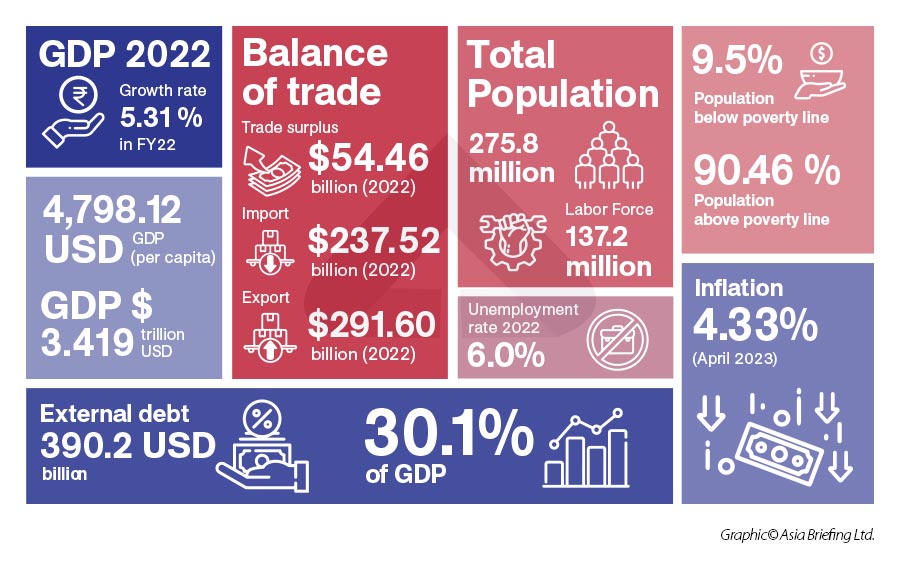Taxation affects almost all aspects of doing business in Indonesia. Companies and individuals must understand the taxation system, filing requirements, and tax obligations to comply with Indonesian laws.
Indonesia’s parliament has approved the Harmonized Tax Law (HTL), which overhauls the existing tax structure. Changes include an increase in the value-added tax (VAT) rate, a new carbon tax, scrapped plans to reduce the corporate income tax (CIT), and changes to the topline personal income tax (PIT) rate.
The tax system is still evolving at a rapid pace as authorities seek to improve transparency, compliance, and the ease of doing business in the country. The law aims to optimize tax revenue collection and compliance to aid economic recovery for the country.
In this guide, we discuss:
- Tax laws, their administration, and applicability;
- Tax calculation methods for different taxes;
- Transfer pricing and advance pricing agreements;
- Tax incentives for doing business in Indonesia;
- Audit and compliance; and,
- Indonesia’s accounting standards.
Summary of tax rates
|
Tax |
Standard Rate |
Variations |
Abbreviation |
|
Corporate Income Tax |
22% |
Reduced CIT under certain conditions |
CIT |
|
Value Added Tax |
11% |
12%, 0% |
VAT |
|
Withholding Tax |
15%, 20% |
15%, 20% |
|
|
Stamp Duty |
IDR 10,000 (US$0.70) |
||
|
Luxury-goods sales tax |
10%-125% |
10%-125% |
|
|
Individual Income Tax |
5%-35% |
5%-35% |
IIT |
Major laws governing taxation
- Harmonized Tax Law (HTL) or Law No. 7/2021;
- Income Tax Law;
- Value Added Tax ("VAT") Law;
- General Tax Provisions and Procedures ("GTP") Law;
- Investment Law;
- Excise Law; and,
- Carbon Tax Law.
Corporate Income Tax
The corporate income tax rate (CIT) is 22 percent for 2023.
There are several facilities given to businesses regarding CIT if they fulfill the following conditions:
- Companies that are listed on the stock exchange that offer the minimum requirement of 40 percent of total share capital are subjected to a three percent tax cut from the standard rate;
- Companies that have an annual turnover of 50 billion rupiah (US$3.2 million) are eligible for a 50 percent tax cut from the standard rate, which is imposed proportionally on the part of the gross turnover of up to 4.8 billion rupiah (US$309,500); and
- Companies with gross turnover of no more than 4.8 billion rupiah (US$309,500) are subject to a 0.5 percent tax on total turnover.
Individual Income Tax
An individual’s income is subject to 5% to 35% of progressive income tax rates.
Expatriate workers need to know that personal income tax (PIT) in Indonesia is determined through a self-assessment scheme.
The country has adopted a worldwide income taxation system, meaning that individuals considered Indonesian tax residents must pay tax to the government on the income they earned in Indonesia, and also on income they earned from abroad, unless there is an applicable double tax agreement.
Non-resident taxpayers will only be liable to pay PIT for income they earn in Indonesia unless the country in which they are a tax resident has an applicable tax treaty with Indonesia. In these cases, the taxpayer might not pay any tax in Indonesia or pay a reduced amount.
Given these tax treatments, it is important for expatriate workers to understand their tax liabilities in Indonesia. It is advisable to use the services of registered local tax advisors to help determine which tax law regime will be applicable along with any exemptions that may be brought.
Value Added Tax
Taxpayers pay VAT at a rate of 11%.
Value-added tax in Indonesia is imposed on the provision of services or the transfer of taxable goods. VAT rates are set out below:
- 11 percent imposed on most manufacturers, retailers, wholesalers, and importers from April 2022 and 12 percent by 2025;
- Export of tangible and intangible goods is subject to zero percent VAT; and
- The export of services is subject to zero percent VAT.
The government’s negative list sets out all the goods and services that are non-taxable
Around 25 percent of Indonesia’s tax revenue or 298.84 trillion rupiah (US$20.9 billion) last year came from domestic VAT.
Indonesia international taxation
International taxation in Indonesia mainly comprises two entities: the transfer pricing and advanced pricing agreement.
Transfer pricing
Transfer pricing applies to companies that transact between companies from the same group, such as a subsidiary, or other ‘related’ parties.
Transfer pricing in Indonesia is regulated under the Income Tax Law of 2008, which authorizes a tax officer to redetermine the tax income of a taxpayer who has a ‘special relationship’ with other taxpayers.
Advanced Pricing Agreement (APA)
In 2020, the Directorate General of Taxes issued Regulation No.22/PMK.03/2020 (PMK-22) governing the implementation of advanced pricing agreements (APA).
An APA is an agreement between one or more taxpayers and one or more tax authorities to determine in advance a set of criteria, within a specific period, for specific cross-border transactions. This is to ensure such transactions comply with the arm’s length principle as well as assist in avoiding transfer pricing disputes.
Tax incentives for businesses
Tax incentives are preferential tax policies offered by the government to incentivize or encourage a particular economic activity or to support disadvantaged business owners or individuals. From the investor’s perspective, tax incentives are legitimate tools for reasonable tax planning and cost savings. They are a useful indicator of market trends and government priorities.
There are multiple forms of tax incentives available to businesses, such as tax exemptions, tax reductions, lower tax rates, tax refunds or rebates, tax credits, etc.
Indonesia offers a series of tax incentives for businesses that invest in labor-intensive industries, training programs, research and development (R&D), a variety of income tax incentives for businesses investing in specific industries and provinces in the country, businesses that invest in developing talent, and more.
Tax incentives are usually based on:
- Type of tax: Such as corporate income tax (CIT), and value-added tax (VAT)
- Size of business: Such small- and medium-sized enterprises and cooperatives.
- Sector-wise: Companies that invest a certain amount in one of the 246 priority business lines will be afforded fiscal and non-fiscal incentives.
- Region-based: A variety of income tax incentives for businesses investing in specific provinces (such as Aceh, Greater Jakarta, and Riau) or Indonesia’s new capital Nusantara.
Taken together, the incentives are designed to encourage more foreign direct investment (FDI), expand the skilled labor base, and develop industry.

Accounting and audit in Indonesia
Indonesia accounting standards
Audits are to be conducted based on the Indonesian Financial Accounting Standards (SAK), which are set by the Financial Accounting Standards Board (DSAK IAI) and the Indonesian Sharia Accounting Standards Board (DSAS IAI), for Sharia-based companies.
Further, the DSAK IAI has converged its accounting standards with that of the International Financial Reporting Standards (IFRS), issued by the IFRS Foundation and the International Accounting Standards Board (IASB). Current harmonization revolves around the chronological adoption of past IFRS with emphasis on closing the gap between Indonesia’s adoption status and the most up-to-date international standards.
Audit and compliance in Indonesia
Foreign investors will need to be aware that regulations regarding auditing, accounting, and financial reporting are stipulated over several laws and bylaws, and that a good understanding of these can ensure their business stays compliant.
Foreign investors should, however, focus on the Company Law, which dictates the terms for when audits become obligatory in addition to the accounting standards companies should adhere to when preparing financial statements.
Investors should use the services of registered local advisors to make sure they understand the prevailing regulations.











